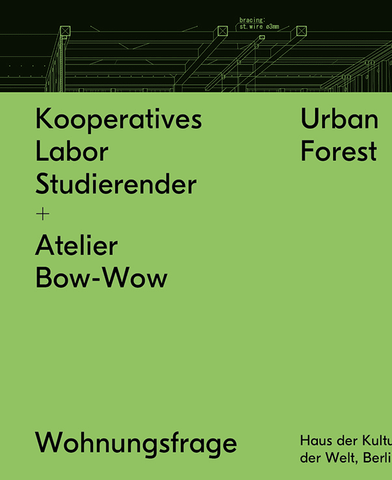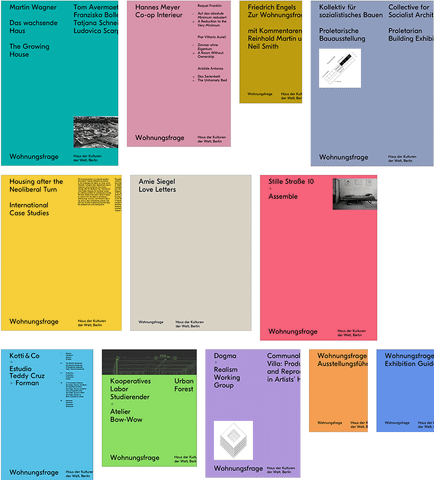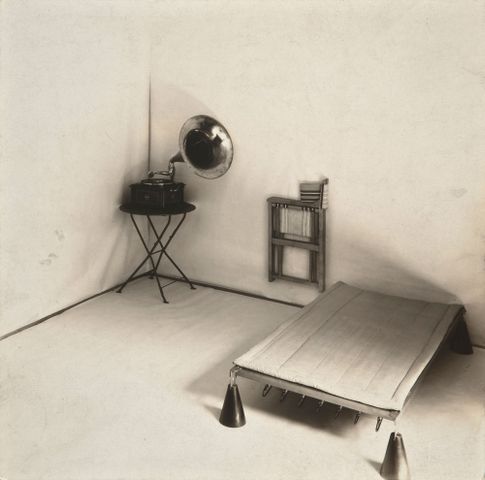Kooperatives Labor Studierender + Atelier Bow-Wow: Urban Forest

Authors: Kooperatives Labor Studierender + Atelier Bow-Wow
English
ISBN 978-3-95905-052-4
EUR 12.00
Available at bookstores, the shop at the Haus der Kulturen der Welt and online at Spector Books.
Can architecture enable the sharing of space and knowledge? As part of Wohnungsfrage, the Kooperatives Labor Studierender (Kolabs) and the Tokyo architecture office Atelier Bow-Wow are developing a housing model called “urban forest” for people in education. The dimensions, shapes, and qualities of private, communal, and public spaces are debated in a dynamic atmosphere of activism and cooperative endeavour.
*
Urban Forest is a life-size architectural model designed by Atelier Bow-Wow in response to a briefing by Kolabs, a Berlin-based students’ initiative. As part of the exhibition Wohnungsfrage it is one of four 1:1 models designed by invited architects for different local tenant-clients. Kolabs’ briefing asked for a design that takes into account the specific requirements of people in the educational process and aspires to be a prototype beyond established forms of students’ housing. The design by Atelier Bow-Wow makes reference to the figure of Italo Calvino’s Barone Rampante, who chooses to live in the trees as a way of emancipating himself from the conditions of land ownership. The exhibition model articulates this choice by detaching the minimized sleeping capsules from the ground while using the main floor as a central space open to a variety of public and semi-public uses.
Urban Forest is both a metaphor and a concrete spatial model. It displays Atelier Bow-Wow’s concept of architectural commonality, which is based on spatial formats and behaviors shared in communities over long periods, regardless of the differences of time and individuality. Commonality conceives dwellers as an integral part of architectural form: behavior and typology are closely linked by being mutually informed by the living patterns of communities. A number of existing commonalities collected and presented by Atelier Bow-Wow, along with a conversation between the architects and Japanese artist Koki Tanaka on the methodology of behavior and relationships, complete this volume.

